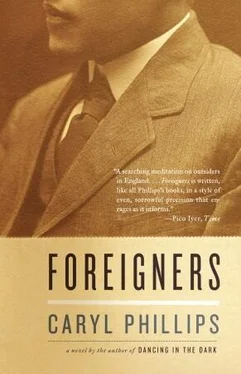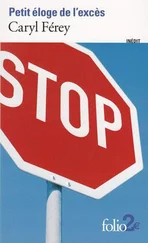Hundreds of poor left Leeds in the early nineteenth century and migrated to the United States in an attempt to escape ruin, while others turned to crime and prostitution. The Leeds Workhouse was always full, as was the prison. As machines began to replace men with increasing frequency, the poor and unemployed became more vocal and expressive in the manner in which they made known their discontent. After all, the daily reminders of widespread poverty and starvation meant that they had little to lose. Those who did work were always in danger of being injured in the mill, or factory, or mine, and the worst abuses were often visited upon young children who were habitually pressed into service. However, despite the travails of the working people, and the prevalence of vagrants and paupers on the streets, the town was wealthy. The mistreatment of oppressed workers who laboured intensively in dangerous conditions, and the exploitation of child labour in factories and mills, guaranteed that industry would prosper and the wealthy become increasingly affluent. Meanwhile, the area of Mabgate, which was located down by the river beside the parish church, witnessed the greatest concentration of misery, and although social problems of poverty and prostitution were neither confined to Mabgate nor to Leeds, the town was eventually forced to acknowledge that it was confronted with a serious situation.
Victorian Leeds boasted an extraordinary number of alehouses, which exacerbated the atmosphere of misery, and although many temperance societies grew up in the wake of this excessive drinking, neither church nor local government could arrest the decline in the social fabric of the town. These were dark times for Leeds, and not even the air was pure, for the toxic industrial soot blackened the lungs of the high and the low alike. By the middle of the nineteenth century the population, including the townships, had surged to 150,000 and overcrowding was endemic. In 1836 the Leeds police force had been formed and, shortly thereafter, they were armed with cutlasses and heavy batons. It was understood that the police were obliged to defend the rights of the mill owners and prevent the 'mobs' from attacking the mills, and soon after the establishment of the police force their numbers, and powers, were extended in order that they might deal effectively with growing working-class resentment. In 1847 a new borough jail was constructed at Armley to cope with vagrants and other undesirables, and during this period of rapid urban growth, the wealthier citizens quickly learned that they must vigorously monitor the underclasses for these people were not, under any circumstances, to be allowed to gain the upper hand. Aside from wealthy mill owners and industrialists, by 1845 there were over one hundred stockbrokers in Leeds, and the town enjoyed its own stock exchange. There were, in effect, two towns of Leeds, and although Mabgate bore no relationship, social or otherwise, to cosmopolitan Leeds, the underclass also wished to participate in the success story of their town. They too wished to belong, and be a part of this miraculous adventure in growth and development which had witnessed a small river crossing grow to the point where it now stood ready to make a magical transformation into a city. The disenfranchised of Leeds were refusing to go anywhere. They insisted on being heard, and they demanded that they be allowed to participate. They would not disappear. Nobody disappears. People don't just disappear. Surname: Oluwale Christian Name/s: David Unit No: 2726 Status: Informal Address: NFA Sex: Male Marital Status: Single Admitted From: St James's Hospital, Beckett St,
Leeds 9, Town Hall, Leeds (2) D of B: 8.8.30 Religion: C/E Nat. Ins. No: Zk 45 03 6 °C Admitted: 11.6.53 Section 26 Status: C(Certified)
I never saw him and I never knew him, but it's a big place. Massive. In fact, I never saw no coloured people at all. But then again it's difficult because of the drugs. They affect your memory. The medication, as they like to call it, it can make you scream and then they just look at you and that's when they remind you that you're mad and that you'll not be going anywhere. I would find myself walking up and down corridors, talking to myself, thinking who the hell is this crazy bastard in my head, and then before I knew what was happening the nurses would be all over me, holding me down, forcing more stuff down my throat. They used to talk to me like they were my friends, then suddenly they would turn on me and that would be it. All men, never any women nurses, and they would trick you into thinking that everything was fine and okay, but it wasn't like that. And slowly, you know, I think I began to get the idea of what was going on. You'd see people coming in who looked alright, like you could go up to them and ask them how things were on the outside. Then the next time you'd see them they were zombies and they didn't know you, and that's when you realised that something was seriously wrong. But like I said, I didn't see no coloureds. I didn't see anybody like David Oluwale. I decided I had to get out of High Royds, but it wasn't that easy. I must have been getting better because I saw a doctor one day, and you didn't get to see them that often. But I saw this doctor and he even smiled, and before I knew where I was I found myself in an open ward. I thought to myself, you know, this is your big chance so you better take it. And so I absconded, but they caught me in the next village, or so they said, I don't remember. In Guiseley, I think it was. They brought me back and this time they locked me in a room by myself with only a bucket for a toilet. They let me out in the morning, but kept an eye on me. I went to Occupational Therapy, which everybody called OT, and I learned a bit about printing. The females did sewing and knitting, or they made baskets, but they gave the males different things to do. I used to wish I was back in prison, because you have more freedom in prison. Also, they don't give you medication in there, so you don't twitch as much and there's less nightmares. There's plenty of coloured blokes in prison. I might have seen this Oluwale fellow in there. At night they'd take me from OT back to the room with the bucket, and they'd lock me in. After I'd gone down the drainpipe and absconded the first time I thought, I'm not doing this again. But they weren't going to take any risks now. They watched me like a hawk. I never really did see how big this place was, but it was huge, I knew that. But by now all I wanted was to get out of there. It had been years, and nobody visited anymore, and I was sick of seeing old men picking up tabs from off the floor and shuffling around like they didn't know their name or care anymore. I didn't want to be like them. They were in their seventies some of them, and I didn't want to end up like that. If somebody gave them a sweet they were so grateful they looked like they might cry, but they were the ones who gave me the will to get out. It wasn't the doctors, for I hardly ever saw them. In fact, there was nobody to talk to about how you really felt about things, so you just kept your mouth shut and pretended to behave and hoped that the drugs wouldn't make you any more mad. Eventually it worked for me because one day they didn't take me back to the room and lock me in. They put me in a Nissen hut type of place which was a more open kind of ward, and I slept in there for a while. Maybe a year, I don't know. You never really knew much about time in High Royds. This place was better, but I'd still rather have been in Armley jail, because there you definitely knew about time and you've got your wits about you. But it's hopeless once they put you in the loony bin. It's hopeless trying to hang on to anything. Before you know what's going on they turn you into a bloody zombie and there's nobody to talk to. The nurses have got their jobs to do, but they're more like guards or prison officers. And the guys in OT, they sometimes told you straight out that it would be easier training chimpanzees. Basically, you've lost control of your life, but I was lucky. Luckier than most of them, because I got called into the doctor's office and he told me that I was going to be discharged. I said nothing because I didn't believe him. Then I realised that I didn't want to go because I didn't have any connection with the world anymore. Not since I'd gone down the drainpipe then been dragged back again. I didn't know anybody. I didn't know anything about life out there and it was frightening to me. The thing is, not only had I not seen any coloureds in High Royds, I don't know if I'd ever seen any at this time, apart from when I was in prison. I was more of a country person, not a city type, and we just didn't have any. But he could have been there and nobody would have known as the place was so big. But when they eventually said to him 'You're discharged' he'd have had the same worries as the rest of us. I mean, where are you supposed to go?
Читать дальше











![Unknown - [Carly Phillips] The Bachelor (The Chandler Brothe(Bookos.org) (1)](/books/174132/unknown-carly-phillips-the-bachelor-the-chandle-thumb.webp)
